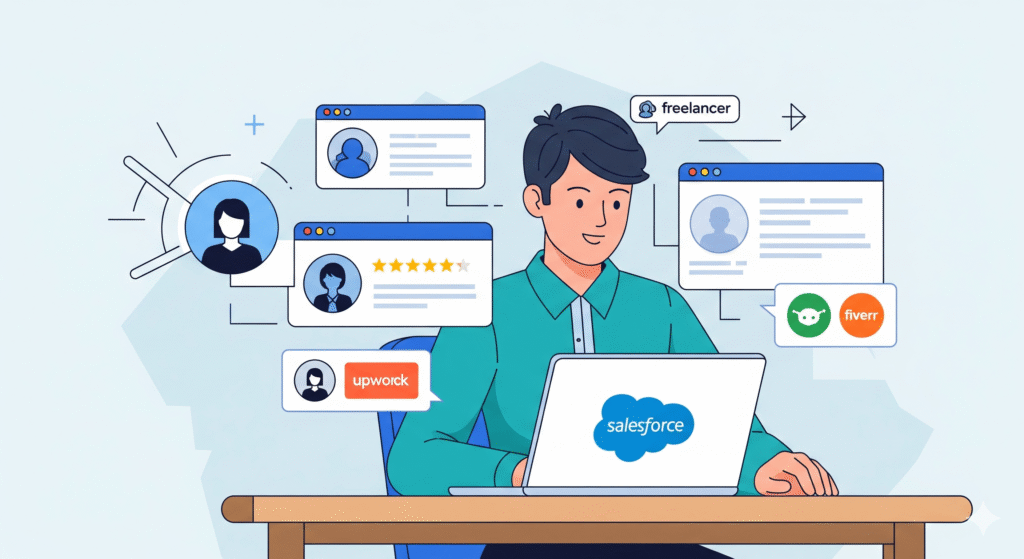Salesforce Lightning Data Service vs Apex: Which to Use?
When building custom applications on the Salesforce platform, developers often face a crucial decision: should they leverage the power of Salesforce Lightning Data Service vs Apex for data manipulation and interaction? Both offer distinct advantages, and understanding their capabilities is key to choosing the right tool for the job, ensuring efficient and scalable solutions. This post will break down the core differences, use cases, and help you decide which approach is best for your specific needs.
Understanding the Core Concepts
Before diving into the comparison, let’s clarify what each technology entails:
Salesforce Lightning Data Service (LDS)
Lightning Data Service is a framework that provides client-side access to Salesforce data without requiring Apex code for basic record operations. It’s built on top of the Lightning Component Framework and leverages Locker Service for security. LDS offers a declarative way to perform Create, Read, Update, and Delete (CRUD) operations on records directly from your Lightning Web Components (LWCs) or Aura Components.
Apex
Apex is Salesforce’s proprietary, strongly-typed, object-oriented programming language. It allows developers to execute complex business logic, database operations, and perform advanced data manipulation that goes beyond the capabilities of LDS. Apex code runs on the Salesforce platform’s server-side, offering greater control and flexibility.
Key Differences: Salesforce Lightning Data Service vs Apex
The primary distinction between Salesforce Lightning Data Service vs Apex lies in their execution environment, complexity, and intended use cases:
Execution Environment
- LDS: Runs client-side (in the user’s browser) for components.
- Apex: Runs server-side on the Salesforce platform.
Complexity and Capabilities
- LDS: Ideal for simple record operations (CRUD), form handling, and displaying data. It’s declarative and requires minimal coding.
- Apex: Necessary for complex business logic, data validation rules, batch processing, integration with external systems, and intricate queries. It’s programmatic and offers extensive control.
Performance
- LDS: Can be faster for simple UI updates as it avoids server round trips for basic data operations.
- Apex: Performance is dependent on the complexity of the code and SOQL queries. Optimized Apex can be highly performant for complex operations.
Security
- LDS: Inherits the user’s permissions, ensuring data access is governed by their profiles and sharing rules.
- Apex: Can enforce security through Apex code (e.g., `with sharing` or `without sharing` keywords), providing finer-grained control.
When to Choose Salesforce Lightning Data Service
Opt for Salesforce Lightning Data Service when:
- You need to perform basic CRUD operations on a single record within a component.
- You want to display record data in a read-only or editable format.
- You’re building simple forms that don’t require complex validation beyond standard field-level security.
- You want to reduce the need for Apex controllers for straightforward data interactions.
- You’re aiming for a faster UI response for simple data updates.
For example, displaying account details on a custom component or allowing users to edit contact information are excellent use cases for LDS. You can find more information on Salesforce’s official documentation regarding Lightning Data Service.
When to Choose Apex
Choose Apex when:
- You need to perform complex business logic that cannot be achieved declaratively.
- You need to query data from multiple objects with complex relationships.
- You are implementing custom validation rules that go beyond out-of-the-box functionality.
- You need to integrate with external systems or APIs.
- You require bulk data operations or batch processing.
- You need to automate workflows that involve multiple steps and conditional logic.
- You need to enforce specific security models not covered by LDS alone.
For instance, if you need to calculate a discount based on a complex set of criteria or update related records across different objects simultaneously, Apex is the way to go. Our services page details how we can help with such custom development.
Combining LDS and Apex for Optimal Solutions
It’s important to note that Salesforce Lightning Data Service vs Apex are not mutually exclusive. Often, the most robust and efficient solutions involve a combination of both. You might use LDS for the initial display and basic editing of a record, and then call an Apex method to perform a complex calculation or update related records when a save button is clicked.
This hybrid approach leverages the simplicity and speed of LDS for common tasks while retaining the power and flexibility of Apex for more demanding operations. This is a common pattern for building sophisticated and user-friendly applications on the Salesforce platform.
Making the Right Choice
The decision between Salesforce Lightning Data Service vs Apex boils down to the complexity of your requirements and the desired user experience. For simpler UI-driven data interactions, LDS often provides a faster and more declarative path. For intricate business logic, advanced data manipulation, and integrations, Apex remains indispensable.
At Sflancer, we specialize in building custom Salesforce solutions that balance efficiency and functionality. If you’re unsure about the best approach for your project or need expert guidance, don’t hesitate to contact us. We’re passionate about leveraging the full potential of the Salesforce platform to drive your business forward. Explore more insights on our blog, or visit our homepage to learn more about our offerings.

